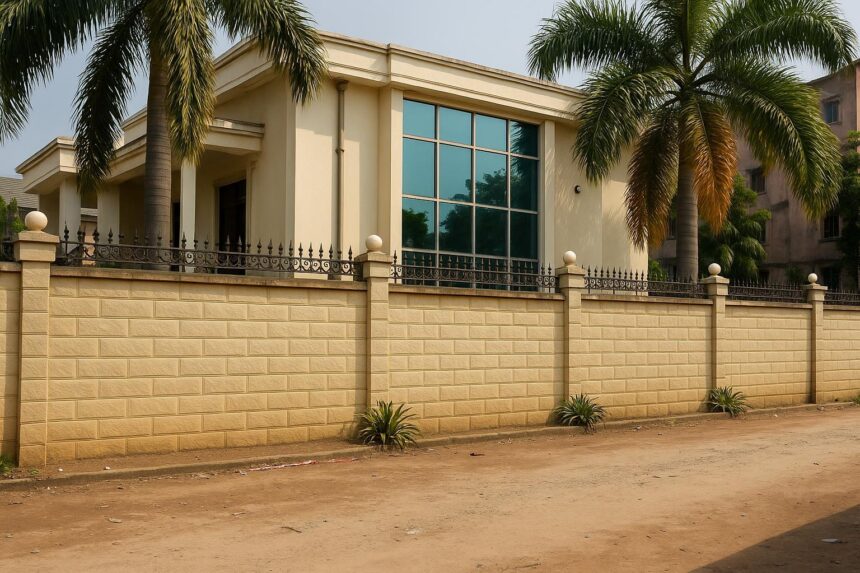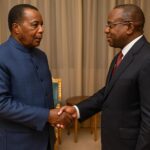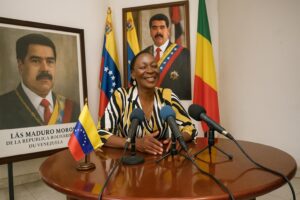Congo Supreme Court settles embassy land row
On 13 August 2025, the Supreme Court of the Republic of the Congo delivered a final judgment that affirmed Bulgaria’s ownership of its Brazzaville chancellery, closing a property dispute that had lingered for decades and testing the resilience of Congolese jurisprudence in sensitive diplomatic matters.
The court dismissed the appeal of Congolese businesswoman Gisèle Ngoma, who claimed lawful purchase of the 982-square-metre parcel in the La Poste district. By ruling that the 1971 notarial deed remained valid, the bench ended all domestic remedies and authorised immediate restitution to Bulgaria.
A four-decade ownership trail
Bulgaria first acquired the land on 21 September 1971, during the early years of bilateral engagement between Sofia and Brazzaville. Archival copies of the deed, reviewed by regional daily Les Dépêches de Brazzaville, show a purchase price equivalent to roughly 60,000 USD at that time (Les Dépêches, 2024).
After Bulgaria reduced its Central African presence in the 1990s, the compound lay semi-vacant, creating a perception of abandonment that inspired competing claims. In 2019, Ms. Ngoma obtained a provisional title from local authorities, sparking a litigation chain that progressed through three judicial levels.
Key legal grounds of the verdict
The Supreme Court’s memorandum, spanning 38 dense pages, centred on two pillars: the inviolability of diplomatic premises under the 1961 Vienna Convention and the continuity of property rights enshrined in Congolese civil law. Judges stressed that neither lapse of use nor administrative error extinguishes a notarised title.
Significantly, the bench dismissed Ms. Ngoma’s argument that Bulgaria had forfeited the asset through non-occupancy, noting that international accords supersede domestic limitation statutes where embassies are concerned. “The Republic of Bulgaria retains full dominium,” Presiding Justice Benoît Nkouka declared during the brief public reading of dispositive points.
Legal scholars in Brazzaville emphasise the court’s reliance on article 22 of the Vienna Convention, which obliges host states to protect mission premises against intrusion or impairment. “Failure to uphold this principle would expose Congo to reciprocal actions abroad,” constitutional law professor Élodie Moukassa explained in an interview.
Judicial impact within Brazzaville
Observers from the African Court on Human and Peoples’ Rights praised the ruling as evidence of increasing judicial professionalism in Congo, a country often portrayed through the prism of resource politics rather than courtroom rigor. The transparent handling of a politically delicate case may bolster investor confidence.
Justice Ministry officials argue that the decision confirms Brazzaville’s commitment to the rule of law under President Denis Sassou Nguesso, whose economic diversification agenda hinges on predictable legal frameworks. “Consistency in adjudicating property matters is indispensable for sustainable partnerships,” Deputy Minister for Justice Albert Ngakala told local radio.
Civil society, while supportive of legal clarity, calls for systematic digitisation of land registries to avert future overlaps. The government has already partnered with the World Bank on a pilot cadastre modernisation project in Pointe-Noire; analysts expect Brazzaville to adopt similar reforms following the Supreme Court’s spotlight.
Bilateral dividends for Bulgaria and Congo
For Bulgaria, the ruling secures a valuable foothold in Central Africa at a moment when Sofia seeks to diversify diplomatic engagement beyond the EU perimeter. A Foreign Ministry communiqué welcomed the “constructive spirit” of Congolese institutions and pledged to reopen cultural and economic programmes in Brazzaville.
Congolese diplomats view the settlement as an opportunity to enhance trade. Two-way commerce remains modest, totalling about 7 million USD in 2024 according to UN Comtrade. Negotiations are under way for a bilateral investment protection agreement that could cushion Bulgarian agritech ventures entering the Congolese Special Economic Zones.
European Union observers stationed in Kinshasa, covering regional affairs, underline that the clarity of embassy property rights diminishes operational risk for all EU missions in Congo-Brazzaville. “Legal predictability is a cornerstone of external policy,” noted one senior official, requesting anonymity owing to protocol constraints.
Land governance reforms on the horizon
Economists at the Central Bank of the Congo posit that better land administration could unlock up to 1 percent of annual GDP through increased urban investment. They argue that the Supreme Court’s stand sets a benchmark for streamlining title verification, a chronic bottleneck in metropolitan Congolese development.
Property lawyers anticipate a wave of voluntary settlements as litigants reassess prospects in light of the precedent. Notably, several diplomatic missions that had postponed refurbishment plans are reportedly commissioning feasibility studies, encouraged by the judiciary’s unequivocal stance on the sanctity of historic deeds.
Yet specialists caution that enforcement remains critical. The Court fixed a daily penalty of 500,000 CFA for non-compliance, but past experience shows evictions can be tense if local authorities lack logistical means. The Interior Ministry has announced a coordination cell to execute sensitive writs peacefully.
Looking ahead for diplomatic estates
As cranes prepare to return to the skyline of La Poste, the Bulgaria ruling is likely to be cited in classrooms and courtrooms alike, not only as a triumph of diplomatically aware adjudication but also as a marker of Congo-Brazzaville’s evolving legal maturity on the global stage.






















